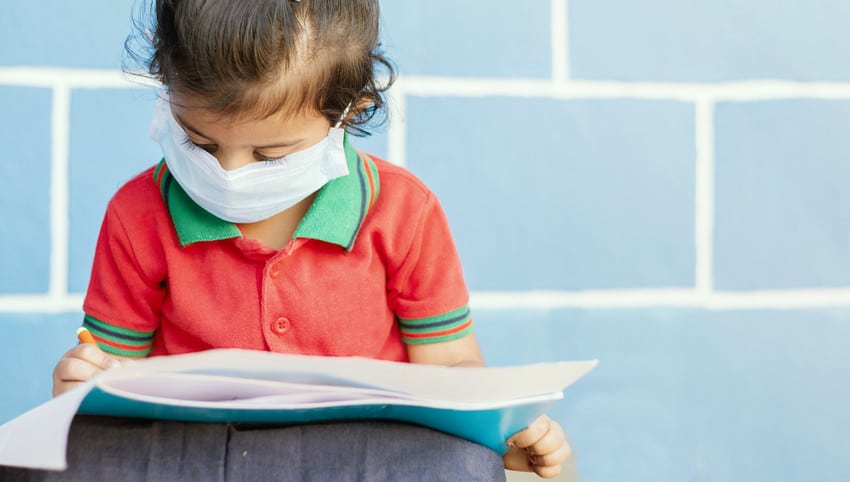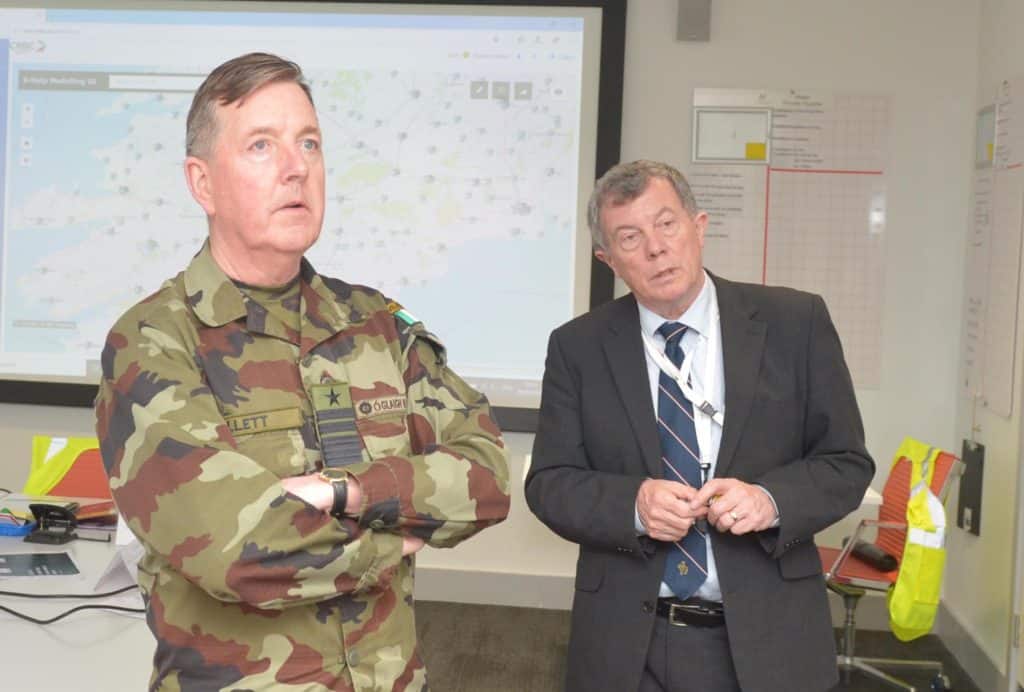
Developing nations are bracing for a major catastrophe and the loss of millions of lives, as COVID-19 cases continue to rise in poorer, highly populated and under-resourced communities.
Plan International Ireland declared the COVID-19 emergency as ‘the single greatest threat to children’s rights and equality for girls we face, in both its scale and its severity’.
As COVID-19 forces school closures in 185 countries, UNESCO estimates that over 89 per cent of children enrolled in education are currently out of school because of COVID-19 closures. This represents 1.54 billion children and youth enrolled in school or university, including nearly 743 million girls.
Over 111 million of these girls are living in the world’s least developed countries where getting an education is already a struggle. These are contexts of extreme poverty, economic vulnerability and crisis where gender inequality in education is highest. In Mali, Niger and South Sudan — three countries with some of the lowest enrollment and completion rates for girls — closures have forced over four million girls out of school.
The development and humanitarian organisation who advance children’s rights, operates in 75 countries worldwide, has taken the unprecedented step of declaring a global red level emergency across the organisation, which will involve a concerted, multi-country approach on a scale never seen before.
Plan International are implementing programmes in the most vulnerable communities around the world to help slow the spread of COVID-19 and to continue to protect and empower girls as they weather this storm.
In Ireland, we are fortunate to have access to excellent medical care, good nutrition and soap and clean water. But alarmingly, the WHO has reported that at least half of the world’s population could not access essential medical care even before the onset of the COVID-19 pandemic. Many of these communities – and in particular children – are already suffering from malaria, dengue fever, HIV and AIDS, tuberculosis and malnutrition.
Plan International Ireland CEO Paul O’Brien said while positive signs are emerging in a number of developed countries that are ‘flattening the curve’, achieving this in poorer countries will be infinitely more challenging.
“COVID-19 affects us all. But the communities where we work abroad stand to lose the most. For so many, something as simple as accessing soap and water to wash hands is a daily challenge and physical distancing is really hard to do,” Mr O’Brien said.
“We have no doubt whatsoever that the COVID-19 crisis is on a path to overwhelm national health systems, badly damage economies and put millions of children at significant risk of harm. Girls, in particular, face increased threats of sexual violence, discrimination and abuse.
“When they are isolated at home they are more prone to domestic and gender based violence. Rates of child marriage often increase at these times as we witnessed after the Ebola epidemic in Africa.
“Most countries in the Global South have limited social protection measures in place, so economic hardships caused by the crisis will have spill-over effects as families consider the financial and opportunity costs of educating their daughters. While many girls will continue with their education once the school gates reopen, others will never return to school.” Mr O’Brien said.
In Sierra Leone, adolescent pregnancy increased by up to 65 per cent in some communities during the Ebola crisis. Nearly 48 million women and girls (including four million pregnant women) in need of humanitarian assistance and protection in 2020 face magnified dangers from COVID-19 outbreaks.
“While the numbers in many poorer nations are small they are increasing, and they are scrambling to put measures in place to lessen the impact. The ability to treat severe forms of COVID-19 will depend on intensive-care units, availability of ventilators, oxygen and even electricity. In Liberia, for example there are no intensive-care units with ventilators, so the priority now is to slow the spread. The coming weeks will be absolutely crucial to saving many, many lives.”
Notes on Plan International’s response:
Plan International are responding to the crisis by working with communities, governments and partners in Africa, Asia and South America to: ï tackle the spread of the virus through disseminating public health information; ï promote best hygiene practices and increasing Water Sanitation and Hygiene (WASH) programming; ï assist communities to install hand-washing facilities; and ï Child protection measures will also be stepped up to ensure that children and their families are supported and prepared to deal with the social and economic impact of this virus.
As the crisis unfolds Plan International will support and protect those directly affected in refugee and displaced persons camps in Bangladesh, Jordan, and Southern and Eastern Africa.
For more information visit www.plan.ie.


